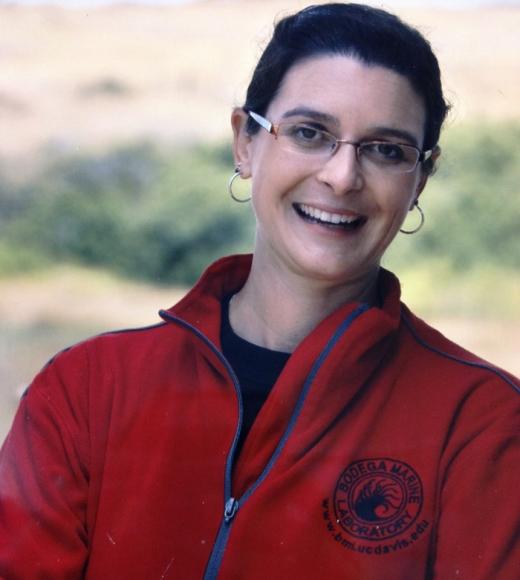Tessa Hill: Assessment of Student Learning (COVID-19)
Assessment of Student Learning in Remote Teaching and Learning Contexts
Increased Flexibility, New Assignments, Adapted Group Work
By Tessa Hill, Professor of Department of Earth & Planetary Sciences
Q: How have you reconsidered your (course level) assessment plans in light of the remote teaching and learning context?
A: I have made several changes to my assessment in my upper division course (70 students) this quarter.
Shifting the Emphasis in Group Work
In previous years, there were multiple big projects in this course that were done as group projects. Each student would be assessed on their contributions to these projects, but they were done collaboratively.
The use of group projects really didn’t seem feasible this quarter, so what used to be group presentations in the discussion section are now short individual presentations; however, students are still in groups based upon topic/interest area, so they benefit from some interaction with peers.
New Types of Assignments
One of the learning outcomes for the course is that students will be able to communicate clearly about oceanography in multiple ways. Previously, to address this outcome, there was a many-weeks-long project where we worked on contributing to LibreTexts. The collaborative project engages students in meaningful ways, but the logistics are challenging in ordinary times. Understanding that this quarter was not the time for additional logistical challenges, I replaced this complex project with two new assignments in the lecture portion of the course.
One is a weekly Nature Journal, which aims to hone skills of observation and interpretation. Students have a prompt each week but are primarily encouraged to go outside (or look outside) and observe nature, take good notes, and think/write about how what they learn from that connects to our course topics. The Nature Journaling assignment was inspired and informed by J. M. Laws’ work on Nature Journaling. The second new assignment is on Science Storytelling and encourages students to think about telling a scientific story via written narrative, a speech, or a piece of art.
In designing these two new activities, my goal was to stay focused on the learning outcome, allow students time to think and reflect, and incorporate course material into their daily lives, where possible.
Increased Flexibility for Due Dates
The other main change in addition to the above assignments is increased flexibility on the timing of when assignments are due. My TAs and I are primarily concerned with the health & well-being of students. I am noticing that many students are having a hard time juggling the sheer amount of online assignments/work that they have to do for their many courses. Students seem overwhelmed with deadlines, even more so than normal. We don’t want to add to that, to the extent we can control it.
Resources for adapting assignments and assessments for remote teaching
- Tessa is curious about student learning
- In Spring 2019, Tessa participated in the ACCELERATE program, which is an intensive, hands-on professional development in equitable and inclusive digital pedagogies and instructional strategies developed and facilitated by the Learning and Teaching Support Team in the UC Davis Center for Educational Effectiveness.
The ACCELERATE (2019) has been life-saving for me. When I packed my office [to move to the remote context], I took my desktop computer, a few books, and the ACCELERATE binder.” Tessa went on to say that she took all the principles from ACCLERATE and applied them to revise the courses she is teaching this quarter. She said she was able to make instructional decisions more easily and quickly due to her participation in ACCELERATE.